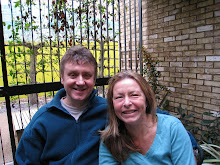Just back from the second Schools' Solar Power project trip in which we visited three schools, two in Zoba Anseba and one in Zoba Gash Barka plus an additional one in Zoba Gash Barka which already has a solar panel installation (it was the original pilot) but which has not been able to run its computers for any length of time so far.
The first school we visited (Hawush in the Asmat sub-zoba) felt really remote. We took four hours to travel 108 km each way along a rough road which at times went up and over mountains with a steep drop at the side and at times bumped across rocky river beds. In addition we were out of mobile phone range for the whole journey.
Each of the schools was a deserving case and the school directors each pointed out that students and parents are well aware of the disadvantage of having no opportunity to pick up even the most basic computer skills so much so that leakage of students to other schools in the region was attributed to the lack of ICT training on offer.
The low point of the trip for me was the visit to Gogne school which was the original pilot. What had happened was that a vital component (the inverter - the part which converts the DC output from the power pack to AC) had failed last September and and only just been reinstalled. Now none of the computers worked and were clogged up with dust due to not having been looked at for months - the room was also in a sorry state with thick dust everywhere.
However, while this sounds like a disaster it was only the pilot project and was intended to be a learning exercise. It seems there are some very clear lessons to be learned. We need to:
- Ensure school staff are properly trained in maintaining the solar power equipment, including what to do when it has been switched off for several months.
- Ensure school staff are properly trained in maintaining the computer equipment, with special emphasis on protection from killer dust and on maintenance during the long school break.
- Ensure we make the point strongly about keeping the general environment clean.
We have discussed Gogne since our return from the trip and have decided that the school will get new computers (the first batch were old and only suitable for a pilot project) and that the school's ICT staff will come to Asmara for a course of training in a few weeks' time.
To end on a high note the memory I will take from the trip is of two old Nara (I was told) ladies we met in a shop in Haykota. They were looking at me almost fearfully from behind their colourful headdresses until I said 'Selam' to them at which point I was greeted by broad gap-toothed grins and leathery handshakes, they seemed really pleased to be acknowledged.
P
Monday, 16 June 2008
Subscribe to:
Post Comments (Atom)




No comments:
Post a Comment